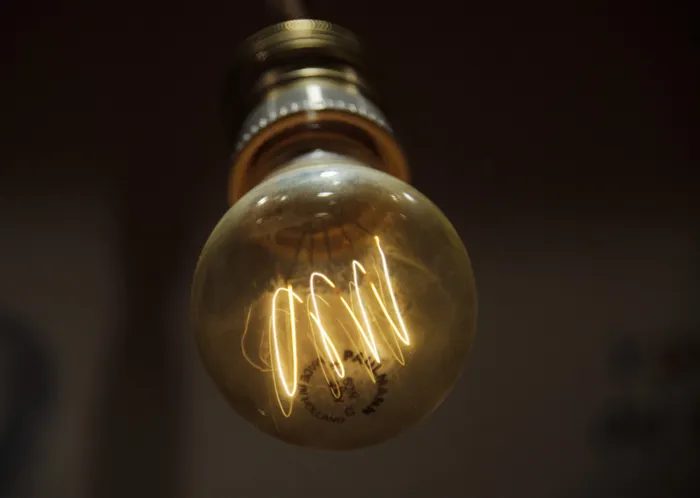Sol faces backlash over steep electricity hikes

Cash-strapped residents are set to pay significantly higher electricity prices over the next few months.
Image: Sebastien Bozon
THE KIMBERLEY Action Group (KAG) has warned of renewed plans to stage mass protests in response to looming electricity hikes.
A meeting arranged by the Sol Plaatje Municipality to engage with the KAG over its concerns regarding high electricity prices, scheduled for May 15, was cancelled at the last minute.
The Northern Cape Chamber of Commerce and Industry (Nocci) has also rejected the proposed 9.6 percent electricity tariff increase, which is scheduled to come into effect on July 1.
A new “muniflex” tariff, where customers will be billed higher rates during peak hours, is also expected to significantly inflate residents' monthly expenses. Typical peak hours will be between 6am and 9am, and again between 5pm and 8pm.
Indigent households will be restricted to 20 amps but will be exempt from the basic or capacity charges.
The Sol Plaatje Municipality’s draft budget for the 2025/26 financial year indicated that it was facing a “severe financial crisis”. It added that “serious remedial action” was required to address the basic and capacity charges.
The municipality stated that it was “paramount” to recover costs for the bulk purchase of electricity and other expenses in order to provide services to the city.
These charges were previously not implemented due to community resistance and threats of a citywide shutdown. Protest action against electricity charges in 2018 brought Kimberley to a standstill.
The municipality’s application to the National Energy Regulator of South Africa (Nersa), dated April 30, 2025, indicated that the basic and capacity charges were later implemented at a lower rate.
Nersa has stated that it will not offer guidelines on the increases, as its revenue template was declared illegal by a court ruling last year. Municipalities must now determine their own tariff increases based on cost-of-supply studies.
Warning of another shutdown
KAG representative Boyce Makodi warned that the shutdown, which was temporarily placed on hold in October 2024, would resume should any electricity increase be implemented.
He said the cancellation of the May 15 meeting was "unacceptable".
"It shows blatant disregard for the seriousness of the issues at hand, which is fuelling the community's growing frustration. Three months after our memorandum of demands was handed over in February, none of the 46 points raised have received any attention. The municipality has yet to appoint a resident-led steering committee that can give input on the electricity challenges,” said Makodi.
He insisted that the basic and capacity charges should not be introduced.
"Should it be implemented, consumers making use of a 40 amp breaker will be liable to pay R271.35 per month before they purchase any units. The municipality has yet to provide a plan to reduce water and electricity losses.”
Makodi added that all increases for municipal officials should be frozen until Sol Plaatje Municipality is “fixed up first”, while the draft budget currently accommodates a 5.5 percent salary increase.
Nocci CEO Sharon Steyn also strongly objected to the tariff increases for businesses and residents.
“This is especially concerning against the background of ongoing service delivery failures and the current economic pressures facing businesses."
She added that frequent power dips and outages were causing serious damage to business operations and household appliances.
“Who will be held accountable for these losses, especially as insurance companies are increasingly rejecting claims linked to recurring electrical faults?” she asked.
Sol Plaatje refers grievances to Nersa
Sol Plaatje Municipality spokesperson Thabo Mothibi advised anyone who felt aggrieved to submit written complaints to Nersa at the e-mail municcomments@nersa.org.za.
“Municipalities apply to Nersa and the process is open for public comment,” he said.
He added that a stakeholder engagement session would be held at the City Hall on May 21.
"Strides have been made regarding the debt repayment. The total debt to Eskom is R1 billion. The total debt eligible for write-off, over the three-year period, amounts to R744.3 million. The accumulative arrear debt post March 2023, excluding the current account, amounts to R226.2 million."
He said insurance claims were being handled by the municipality’s finance directorate.
Breach of conditions
According to the draft budget, the municipality was in breach of its conditions with Eskom and the Department of Water and Sanitation (DWS).
As of February 28, Sol Plaatje Municipality owed Eskom over R1 billion and was R144 million in arrears to DWS.
For the current fiscal year, Eskom has an overdue account of R108.9 million (including interest), while the municipality is R40.2 million behind on its payment arrangement.
In order to qualify for a third of its debt to be written off by the National Treasury, the municipality must pay Eskom a settlement of R149.1 million.
It was noted that it had paid 87.5 percent of its bill to Eskom from March 2023 until January 2025.
In order to be in good standing with DWS, the municipality must settle its account for October 2024 until January 2025, amounting to a total of R71 million, and the R39.9 million in arrears on the debt agreement.
The municipality defaulted on its payments between July 2024 to January 2025.
The full balance outstanding on the debt agreement, excluding a potential write-off of interest of R14.7 million to DWS, amounts to R111 million for the current financial year.
The draft budget stated that the municipality was at risk of being removed from the DWS debt incentive scheme and forfeiting the interest write-off.
Related Topics: